Looking for a new investment opportunity in 2023? Legal Tech may be the right choice for you! After experiencing a dip in funding in 2022, the industry is bouncing back with a new generation of start-ups that are rethinking how legal work is done altogether, using generative AI, better UX, and new ways of doing things. With three significant reasons why now is the perfect time to invest in LegalTech, read on to discover the exciting opportunities waiting for investors in Legal Tech.
Legal Tech investment went through the roof in 2021. But 2022 saw a funding crunch, with $5.38 billion invested (down 23% versus 2021) and the average round size dropping by 21%, reflecting a broader reduction in technology funding rounds, which now is back at 2020 levels.
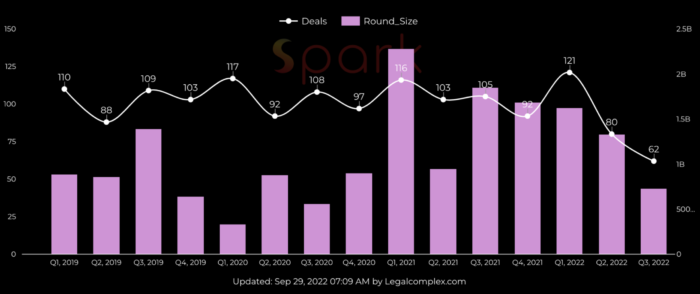
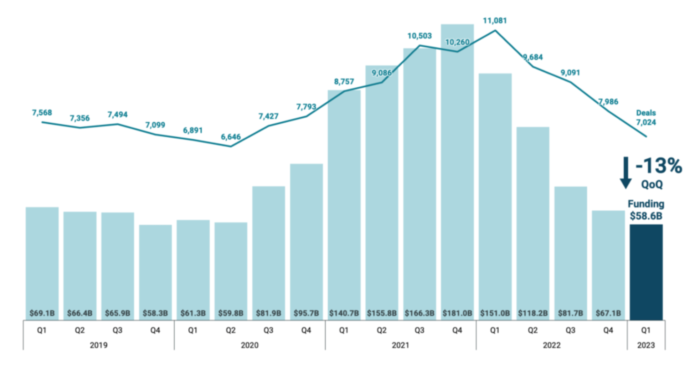
The economic situation is still uncertain. But things are changing. There are 3 big reasons why now is the right time to invest in LegalTech.
Big Reason 1: The new tech is better
To a significant degree, previous generations of Legal Tech were about digitising old processes and knowledge systems. Take contract automation, which largely replicated the way contracts were created using a text editor (Word) and negotiated with a messaging system (email) – with certain improvements of course like a single platform, a better UX and more structured data. Now, new generations of start-ups are rethinking how legal work is done altogether. The resulting tech is creating new and better ways of working.
Take Juralio (which is a new visual way of mapping complex work – which has little to do with traditional spreadsheets and GANTT charts), ScribeStar (which brings stakeholders in capital market transactions together in a new digital environment), and Vable (which is changing how large law firms manage current awareness). And I can’t not plug my own start-up Majoto which is a new way to design, author and agree visual contracts.
Then there’s the new disruptive kid on the block that everyone’s talking about: generative AI. We’ve already seen existing vendors bringing in AI-assisted products, like ContractPodAI’s new assistant Leah. I expect every Legal Tech vendor is looking at how to make their product better, faster and cheaper using generative AI. And we’re going to have more generative-AI-first start-ups popping up, like Harvey (a GPT-4 tool for top-end law firms, trained on legal data) and India’s Amto (proclaiming to be the world’s first AI assistant for lawyers, powered by ChatGPT). Generative AI is a game changer for how usable, affordable, scalable – and ultimately adoptable – LegalTech can be.
All of this is going to reshape the current product landscape. Will customers pay for legacy AI review tools built on proprietary language models, if they can get reasonably accurate answers from a generative AI tool, at a fraction of the cost? Is conventional document assembly (based on conditional logic) at risk, if chatGPT can pull together a reasonable first draft? As it gets commoditised, my prediction is that generative AI will kill off some existing tech categories and prior tech darlings; the survivors will be those who are smartest at integrating generative AI in a way that adds value, or who are bringing an entirely different kind of value over and above workflow digitisation that can’t be replicated by AI.
It leads to exciting investment opportunities in a new generation of start-ups who are doing things differently.
Big Reason 2: Adoption is growing
The rate at which companies and law firms are adopting technology is increasing. A key driver was the pandemic and flexible working in a post-COVID world – increasing the need for digital tools that support remote collaboration, communication, and document management.
The legal industry is notoriously slow in adopting new technologies, and corporations have been slow too. So while the industry has been relatively resistant to disruption – especially where tech is a threat to traditional legal practices – the explosion of new start-ups and technologies means the genie is out of the bottle.
Better UX, new ways of doing things and advances in AI are going to make businesses more receptive to technology and that means law firms have to play catch-up too. As technology matures and moves along the Gartner’s hype cycle and the technology adoption curve, the larger masses of pragmatist and conservative buyers (the early and large majorities) are going to be driving scale and further breaking down the emotional and cultural barriers.
Adoption barriers will remain of course (including complexity, cost and cultural change) – and that means there is a significant opportunity for new start-ups that can figure out how to take those barriers down.
Big Reason 3: Users need solutions more than ever
The demand for legal services (and the demands on legal teams) are increasing, driven by complex regulatory requirements and the growing complexity of the legal landscape. Legal teams are under pressure to do more with less, but the complexity and volume of legal work is outstripping their capacity to deal with it. In-house legal teams’ workload is increasing 25% during 2022-24, while the expectation is that head counts will only increase by 3%. There is a growing recognition that technology is the answer, but most are not prepared.
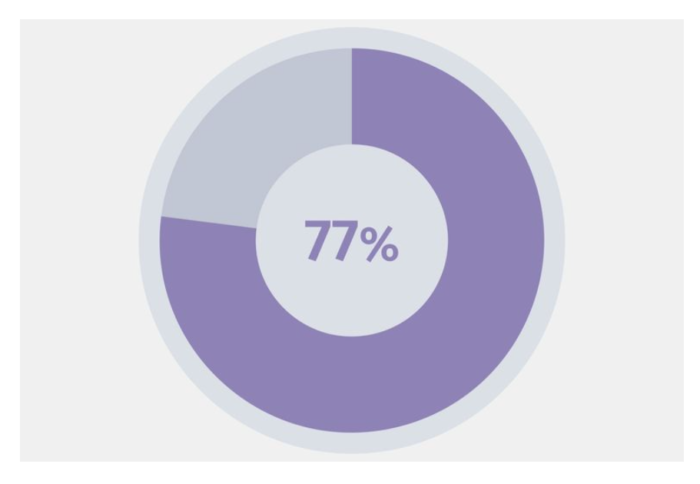
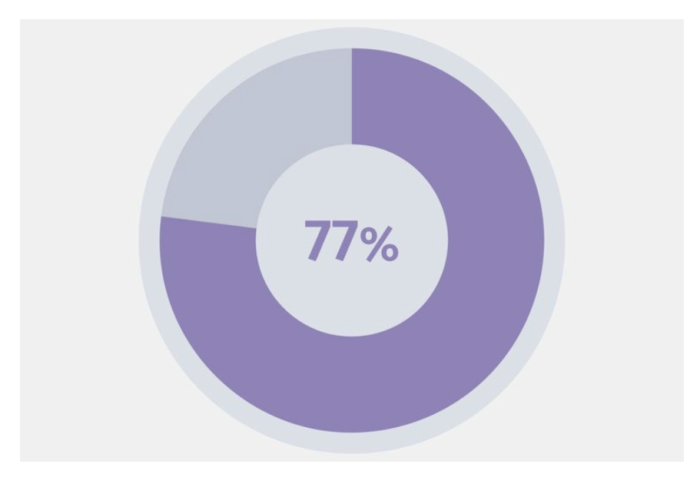
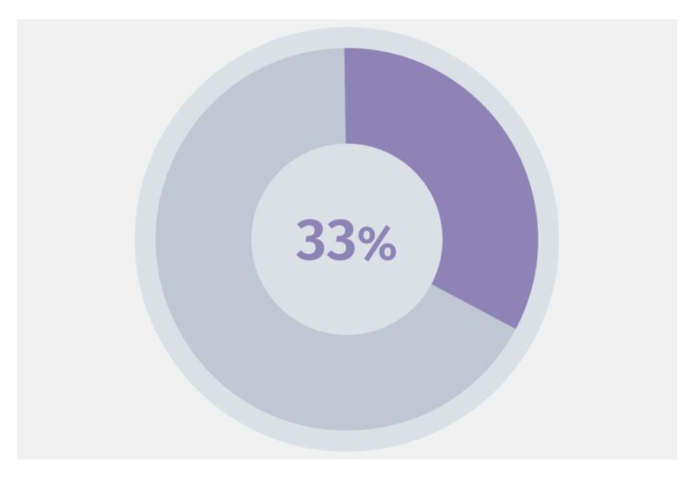
(source: 2021 Wolters Kluwer Future Ready Lawyer)
Legal teams must become smarter and more efficient, and technology is a key enabler. That’s why I expect adoption by legal teams to grow significantly – especially as the mid-market and SMEs start to catch up to their corporate rivals.
Technology is not the only answer. Other changes in the legal industry (such as new business models, and the maturing discipline of legal ops) are creating ripples of change. An even bigger paradigm shift is coming from legal design (the application of design thinking to contracts and legal services) which is being increasingly adopted by forward-thinking legal teams and “new law” businesses. The stats are in: better designed contracts reduce time to signature and associated costs by up to 60% (and for some Majoto customers, even 80%). Majoto marries legal design with automation and I believe that new technologies that adopt and work in tandem with these huge shifts in mindset, are going to deliver game-changing solutions to value-hungry legal teams.
___________________________________________________________
1 EY 2021 Law Suvey
And the data supports it.
Take a look at this: in Q3 of 2022 the number of seed-stage deals in legal markets surpassed later-stage growth funding (series A+). Lets just zoom in on that for a second.

As Raymond Blyd of LegalComplex says, “take a deep breath and let that sink in”.
Denis Potemkin, 19 April 2023
___________________________________________________________
Denis is Founder & CEO of Majoto, a LegalTech start-up that is solving the biggest problem in contracts: that people don’t understand them. Majoto transforms dull wall-of-text legals into clear, human and on-brand experiences that people understand, and wraps it in automated workflows. Majoto customers have reduced their time to contract by 50-80% and boosted customer trust.
Majoto is currently raising a pre-seed round of £350k, with £100k of SEIS tax-relief available until the end of May. You can see more information on the raise here.
__________________________________________________________
2 EcoVadis and Barclays contract design studies via WorldCC.
Categorised in: MONEYtalks

